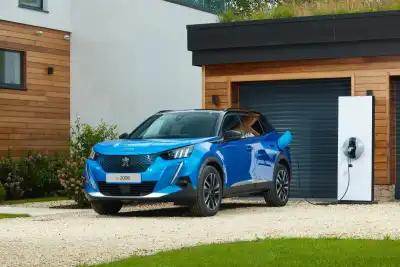
Range is one of the most important factors when deciding whether an electric vehicle fits your lifestyle. Drivers want to know how far they can travel before needing to recharge, and while the answer depends on the model, the good news is that EV range has improved significantly in recent years.
What Do We Mean by Range?
Range refers to the distance an electric vehicle can travel on a full battery. This figure is usually provided using the WLTP (Worldwide Harmonised Light Vehicle Test Procedure) standard, which gives a good indication of real-world performance but may vary depending on how and where you drive.
The Factors That Affect Range
Several factors can influence how far an EV will go on a charge:
- Battery size: A larger capacity battery usually delivers more miles.
- Driving style: Smooth acceleration and steady speeds help maximise efficiency, while aggressive driving reduces range.
- Weather conditions: Cold weather can reduce battery performance, while heating or air conditioning also consumes energy.
- Road type: Motorway driving at higher speeds typically uses more power than urban stop-start journeys.
Typical Ranges for Today’s EVs
Early electric cars often struggled to achieve more than 100 miles, but modern models have transformed expectations. Many mainstream EVs now offer between 200 and 300 miles of range, which is more than enough for most daily commutes and weekend trips. Premium models can push well over 350 miles on a single charge.
Real-World Example: OMODA
The OMODA e5 provides up to 257 miles, a strong option for drivers who mainly cover shorter trips. For maximum flexibility, the OMODA 9 plug-in hybrid offers around 93 miles of pure electric driving with a combined range of up to 700 miles when using both the battery and petrol engine.
Is Range Really an Issue?
For most UK drivers, range is less of a concern than it first appears. The average daily mileage is under 30 miles, which even shorter-range EVs can cover with ease. Charging overnight at home or topping up at work means you rarely start the day on empty. Public rapid chargers then provide reassurance for longer trips.
The Role of Charging Infrastructure
Range confidence is about more than the number on a spec sheet. The expanding UK charging network plays a huge role in making EVs practical. With over 82,000 charge points across the country and thousands more added each year, planning long journeys has never been simpler. Apps and in-car navigation now make it easy to find chargers along your route.
The Bottom Line
Range is improving year on year, with today’s EVs capable of covering hundreds of miles on a single charge. Whether it’s the daily commute, the school run, or a trip across the country, electric cars now have the ability to get you there with ease. When combined with convenient charging options, range anxiety quickly becomes a thing of the past.




